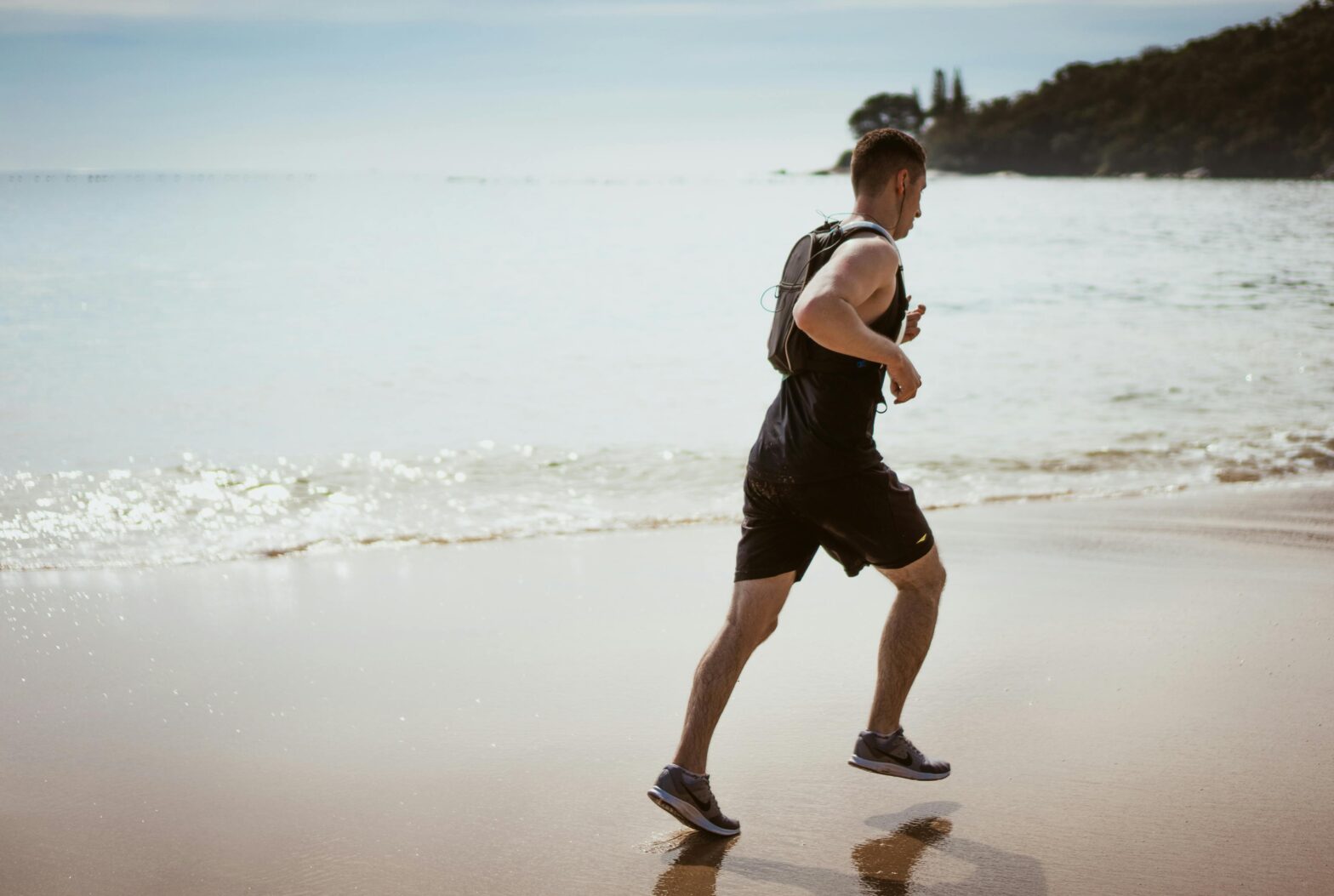The Romans said it centuries ago: mens sana in corpore sano. And it is true: exercise is good for our bodies and our minds. It has immediate and long-term benefits for the brain, prevents neurodegenerative diseases such as Alzheimer’s, and even makes us happy. But why is exercise so good for us?
Benefits of exercise for mental and emotional health
We are all aware that exercise increases your well-being. One of the reasons is that exercising stimulates the production of endorphins, dopamine, oxytocin and serotonin, the happiness hormones responsible for pleasure, improved self-esteem and self-confidence, a sense of joy and good emotional management. The endorphins produced also can reduce the sensation of pain.
Besides making you “happier” it also reduces stress by lowering the levels of the stress hormone cortisol.
Exercise also has a positive impact on social relationships and increases self-esteem. Exercise in the workplace strengthens bonds and motivates people to continue. In addition, the group activities offered at most sports centres provide an opportunity to meet new people with similar health interests. But individual exercise also has benefits at a relationship level. A more defined body leads to a better self-image and thus an increase in self-esteem. When we feel good and confident, we are better able to manage relationships.
Brainpower by exercise
Being active also stimulates the creation of new nerve cells. This process, known as neurogenesis, occurs through increased levels a specific protein that promotes the survival of nerve cells This increases with physical activity. Neurogenesis gradually declines over the years, but exercise helps to keep it active.
Exercise slows down cognitive decline and prevents neurodegenerative diseases. It also improves cognitive functions. Especially concentration, memory and learning. Exercise stimulates the hippocampus, the part of the brain where memories are stored and whose main functions are memory and learning. The cardiovascular effects of exercise reduce age-related diseases and increase life expectancy.
Exercising also has an impact on the quality of sleep and rest. Regular exercise during the day leads to an earlier release of melatonin at night, which means that people who exercise fall asleep faster. And because exercise improves mood and reduces symptoms of anxiety and depression, people who exercise fall asleep with fewer awakenings and wake up more rested the next morning.
What makes an exercise good for you?
- Moderate, so that you can do it consistently over a long period of time.
- Vigorous, so that you sweat and gasp for air.
- Regular and frequent, so that it becomes part of your lifestyle.
- During the day, to avoid difficulties in initiating or maintaining sleep.
- Focused on the process of practice, rather than a result or high performance.
- Pleasant, so that the practice is enjoyable or the effort is manageable. Both of these aspects are very personal, and sometimes it is worth going off the beaten track to find your preferences: if you find the gym or walking boring, guided classes may be an option, or even more exotic practices such as martial arts, calisthenics, table tennis or aerial yoga.
- Respect your chronotype. Morning chronotypes (who prefer to go to bed and get up early) peak around midday. Evening chronotypes (who prefer to go to bed later and get up later) peak in the afternoon. However, the vast majority of people are intermediate chronotypes, a third group that does not belong to the extremes, allowing them to maintain more flexible routines and adapt to social schedules.
- Adjust your sleep schedule. More intense or prolonged training requires more sleep to allow tissues to repair properly and to avoid injury. Overtraining without adequate rest can therefore lead to health problems.
- Better in a group. Exercising with other people is an important part of the psychological factor of sport, as it encourages socialisation.
- Easily accessible, close to home and with equipment that is not only comfortable but also fun.
Can sport be counterproductive?
Doing nothing is just as counterproductive as doing too much exercise. High-intensity physical activity can contribute to even higher stress levels, which can be counterproductive. For this reason, elite athletes should plan their training with realistic goals, adapted to frustration and uncertainty, and have a professional to guide and plan the activity according to the functional and physical characteristics of the person, as it is the elite athletes who are most at risk of suffering the damage of sport if they become overtrained.
The main health problems that sport can cause if practised excessively are:
- Ageing: When we exercise excessively, free radicals are released in large quantities as our oxygen consumption increases. This leads to accelerated cellular ageing.
- Deterioration of joints: lack of rest also leads to wear and tear on muscle tissue and the development of injuries.
- Decreased cognitive performance: A healthy amount of exercise prevents cognitive function from deteriorating, but strenuous exercise prevents some cognitive functions, such as attention, from working well.
- Overtraining: Straining our bodies with too much exercise and too little rest leads to overtraining syndrome, which is characterised by physical exhaustion, depression and anxiety, loss of motivation, insomnia, mood swings and lack of attention, among other things.
The vulnerability of elite athletes
In recent times, high-profile athletes such as Simone Biles and, more recently, Ricky Rubio have spoken openly about their personal experiences with mental health in the context of competitive sport. Both found it necessary to stop competing in order to take care of their mental health.
Ricky was one of the best players in the history of Spanish basketball and point guard for the NBA’s Cleveland Cavaliers, decided to retire and miss the 2023 World Cup. It was mentioned that he had developed chronic stress and needed time to regulate it.
Simone Biles, American artistic gymnast at that moment winner of 7 Olympic medals, pulled out of the Tokyo Olympics due to a critical level of stress that caused her brain to say STOP. She took a break, worked hard both mentally and physically and came back stronger than ever by earning 4 medals during the Olympic games in Paris.
The bravery of Biles and Rubio is not only changing the narrative of success in sport, but also inspiring others to break the silence and seek support in fighting the internal battles that are often kept secret in the world of sport.
In short, sport and mental health go hand-in-hand. People who are active are less likely to fall ill and are more likely to live longer. Exercise makes us physically fitter and also improves our mental health and general wellbeing.
Would you like to work on getting physically or mentally stronger check out our ecare portal supported by professionals of our partner Teladoc Health. Start the Get Fit Program or speak with a mental health coach at no additional costs!


